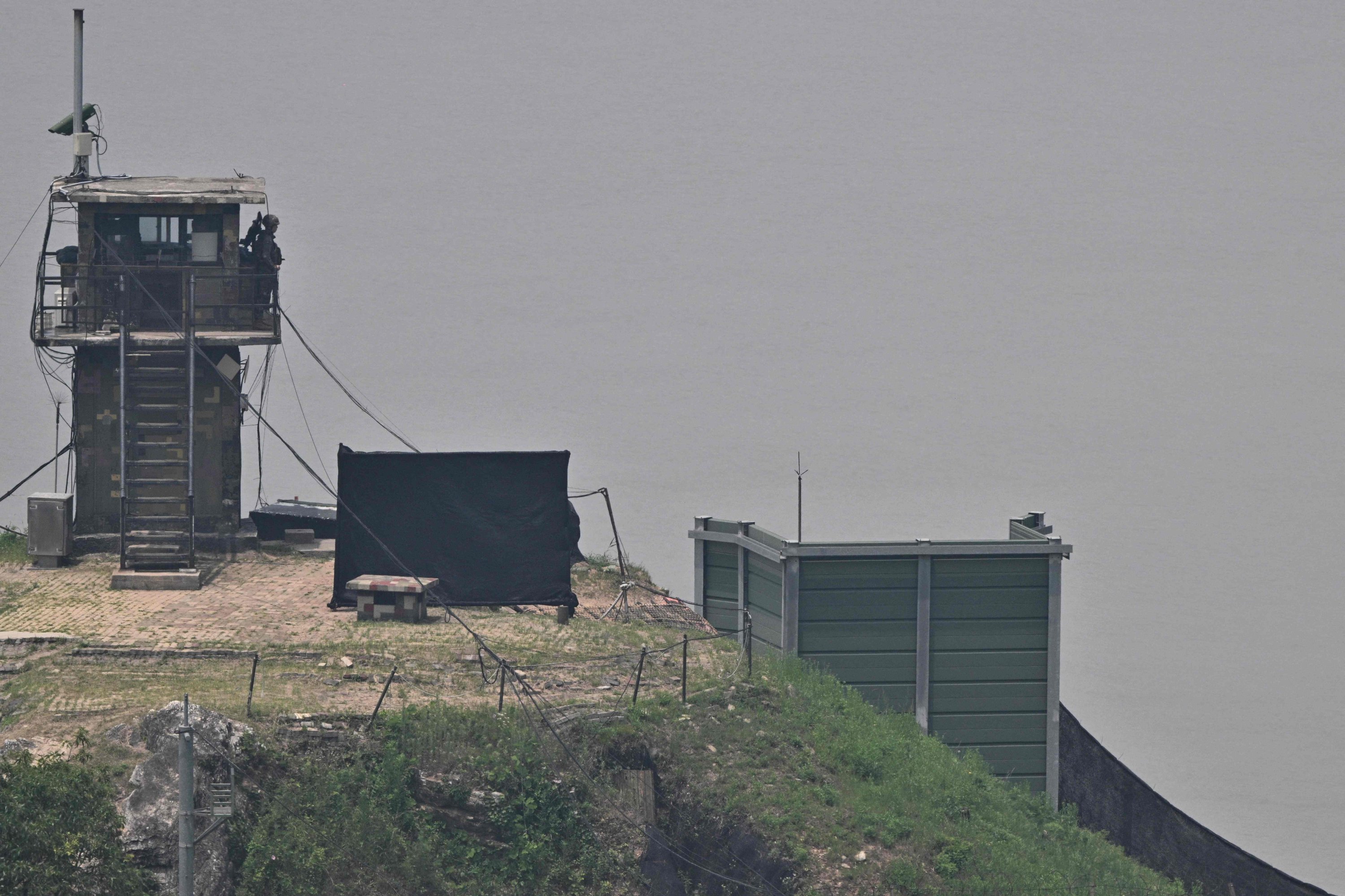© Turkuvaz Haberleşme ve Yayıncılık 2026
North Korean leader Kim Jong Un's influential sister, Kim Yo Jong, issued a veiled threat of retaliation on Friday.
This came after South Korean activists launched balloons carrying anti-Pyongyang propaganda leaflets across the border, highlighting the escalating tensions on the peninsula.
Kim Yo Jong's statement followed a recent pact between Moscow and Pyongyang, promising mutual defense assistance if either country is attacked. Additionally, Seoul's announcement that it would consider supplying arms to Ukraine in response to Russia's invasion added to the regional tension.
South Korea's military also reported firing warning shots on Friday aimed at North Korean soldiers who had briefly crossed the border, marking the third such incident this month, apparently due to a mistake.

Leafleting campaigns by South Korean civilian activists in recent weeks have prompted a resumption of Cold War-style psychological warfare along the inter-Korean border.
The South Korean civilian activists, led by North Korean defector Park Sang-hak, said they sent 20 balloons carrying 300,000 propaganda leaflets, 5,000 USB sticks with South Korean pop songs and TV dramas, and 3,000 U.S. dollar bills from the South Korean border town of Paju on Thursday night.
Pyongyang resents such material and fears it could demoralize front-line troops and residents and eventually weaken Kim Jong Un’s grip on power, analysts say.
In a statement carried by North Korea’s official Korean Central News Agency, Kim Yo Jong, one of her brother’s top foreign policy officials, called the activists "defector scum" and issued what appeared to be a threat of retaliation.
"When you do something you were clearly warned not to do, it’s only natural that you will find yourself dealing with something you didn’t have to,” she said, without specifying what the North would do.
After previous leafleting by South Korean activists, North Korea launched more than 1,000 balloons that dropped tons of trash in South Korea, smashing roof tiles and windows and causing other property damage. Kim Yo Jong previously hinted that balloons could become the North’s standard response to leafleting, saying that the North would respond by "scattering dozens of times more rubbish than is being scattered on us.”
In response, South Korea resumed anti-North Korea propaganda broadcasts with military loudspeakers installed at the border for the first time in years, to which Kim Yo Jong, in another state media statement, warned that Seoul was "creating a prelude to a very dangerous situation.”
Tensions between the Koreas are at their highest in years as Kim Jong Un accelerates his nuclear weapons and missile development and attempts to strengthen his regional footing by aligning with Russian President Vladimir Putin in a standoff against the U.S.-led West.
South Korea, a growing arms exporter with a well-equipped military backed by the United States, says it is considering upping support for Ukraine in response. Seoul has already provided humanitarian aid and other support while joining U.S.-led economic sanctions against Moscow. But it has not directly provided arms, citing a long-standing policy of not supplying weapons to countries actively engaged in conflict.
Putin told reporters in Hanoi, Vietnam, on Thursday that supplying weapons to Ukraine would be "a very big mistake," and said South Korea "shouldn’t worry” about the agreement if it isn’t planning aggression against Pyongyang.
North Korea is extremely sensitive to criticism of Kim’s authoritarian rule and efforts to reach its people with foreign news and other media.
In 2015, when South Korea restarted loudspeaker broadcasts for the first time in 11 years, North Korea fired artillery rounds across the border, prompting South Korea to return fire, according to South Korean officials. No casualties were reported.
South Korea’s military said there are signs that North Korea was installing its own speakers at the border, although they weren’t yet working.
In the latest border incident, South Korea’s Joint Chiefs of Staff said several North Korean soldiers engaged in unspecified construction work briefly crossed the military demarcation line that divides the two countries at around 11 a.m. Thursday.
The South Korean military broadcast a warning and fired warning shots, after which the North Korean soldiers retreated. The joint chiefs didn’t immediately release more details, including why it was releasing the information a day late.
South Korea’s military believes recent border intrusions were not intentional, as the North Korean soldiers have not returned fire and retreated after the warning shots.
The South’s military has observed the North deploying large numbers of soldiers in front line areas to build suspected anti-tank barriers, reinforce roads, and plant mines in an apparent attempt to fortify their side of the border. Seoul believes the efforts are likely aimed at preventing North Korean civilians and soldiers from escaping to the South.
